Breathe – in four weeks the general election will be done and dusted, meanwhile we’ve listed the key information sources and looked at the education related pledges made so far. Of course, the HE sector has been busy too with research funding, postgraduate satisfaction, student accommodation, more free speech, value for money, and widening participation under the microscope this week.
Research
Research Fundermentals have a blog from Wonkfest on discussions with John Kingman (Chair UKRI, ex-Permanent Secretary to the Treasury). Key points:
- UKRI has challenges because the core funding is ‘tight’ – which has consequences for the system
- The 2.4% GDP research and development (R&D) spend target is a ‘stretch target, but not necessarily a crazy one.’ He emphasised that the target was for the economy as a whole, and two thirds of R&D happens in the private sector. He felt using public money to ‘crowd in’ private investment was a sound policy. With both the Government and Opposition backing the 2.4% target he stated the sector should be very pleased about this strong cross-party consensus.
- UKRI ready to administer the Government’s promise to underwrite UK involvement in European funding, however he couldn’t say how this will ‘play out,’ he would be arguing strongly for UK science, and was already ‘heavily involved’ in policy discussions.
- On international engagement we was more reticent – ‘We’ve got to think hardheadedly,’ he said, ‘and consider what benefits will come from any links we make.’ There should not just be memoranda of understanding and photo calls just for the sake of it.
- Kingman was positive about Darpa and didn’t see it as a sign the government want greater control of research funding: ‘I see this as part of a wider jigsaw…It should be wholeheartedly welcomed.’
- On talent Kingman stated: Developing the next generation of researcher is a priority for UKRI. Those working in science are pressured to deliver results quickly. To do so, ‘we need incredibly talented people…and we need to worry about people as much as money.’ UKRI are focused on encouraging and supporting early career researchers and believe research (especially science) needs to be seen as a positive option by people before they leave school. He also stated UKRI should ‘own it’ because there is much to do on equality, diversity and inclusivity.
- Kingman was in favour of REF and believes research has benefited from the system. He agreed REF isn’t perfect and need to continue to develop but that, for him, there was still a strong case for the dual support system, regardless of the legal obligation to continue it, and that we ‘shouldn’t put all our eggs in one basket of project research.’
- Kingman was not in favour of prescriptive regional funding, and believes research should be funded wherever it was found.
On Wednesday the PM made a speech on ‘unleashing the potential of the whole country’ in which stated he would double funding for R&D to £18bn in the “biggest ever increase in support for R & D”. Theresa May’s government committed £7 billion extra R&D funding over five years as part of the 2017 Industrial Strategy, and set the target of reaching 2.4% by 2027. Earlier this year, Johnson said he would “double down on our investment in R&D”, and committed to making an extra investment of £2.3 billion in 2021/22. The science, research and innovation community support the 2.4% target but few believe it is achievable without considerable levels of private investment. With the new announcement that the Conservatives would commit to £18bn this would provide a major boost. Of course, there are not yet details about how this spending will be balanced between competing areas of R&D.
Other commitments made in the speech included investing more in electric vehicle technology and creating a Britain that would lead the world in tackling climate change and reach net zero by 2050. In his own words: “not because we hate capitalism, not just by gluing ourselves to the tops of tubes trains or whatever, as important as that may be, but because it is precisely companies like this one [the London Electric Vehicle Company] that make the brilliant technical breakthroughs that will enable us to cut CO2 and go carbon neutral by 2050”.
Venki Ramakrishnan, President of the Royal Society, responded to the announcement: “Successful science is not based on money alone. We will also need to maintain full participation in European funding schemes and the collaboration that they promote, rather than trying to replace them.” (Source: Wonkhe/Financial Times.)
Postgraduate Student Satisfaction
AdvanceHE have published the 2019 Postgraduate Taught Experience Survey (PTES).
The Office for Students has announced that they will have a new measure of postgraduate satisfaction so this is likely to become an area of focus for the regulator.
- “Overall satisfaction is high and has remained consistent over several years. The one exception to this was in 2018, when a temporary dip in satisfaction appears to be related to UCU (University and College Union) strike action. Despite the strong scores, satisfaction levels remain slightly below those reported by undergraduates through the National Student Survey (NSS).
- …institutions across the sector score particularly highly for providing effective resources (e.g. library, IT, subject-specific) and information, although organisation (logistics, guidance, communication) and assessment (criteria and timeliness) continue to be rated least positively. …The main specific aspect that requires attention is how to provide opportunities for postgraduate taught (PGT) students to be involved in decisions about how their course operates, which scores consistently lower than all the other measures in the survey.
- In 2019, for the first time, we have conducted detailed analysis of the open comments, specifically around suggestions for improvement. This analysis identified some key areas of consistency with the quantitative analysis, building a clear picture of some areas to prioritise across the sector. In particular, these included how teaching staff provide support and how the course is organised.
- A relatively small proportion, 20%, had considered leaving their PGT course to date, which compares favourably with similar data collected at undergraduate and postgraduate research (PGR) level – and is an endorsement of the levels of support provided across the sector.
- In terms of ethnicity, the results go against the stark White/BAME (Black, Asian and Minority Ethnic) contrast that we have previously found at undergraduate level. Instead, there is a more nuanced picture, with Black, Chinese and White students reporting strong satisfaction levels, contrasted by evidence of a more disappointing experience for Asian and Mixed students, as well as those of “Other” ethnicity. A particular challenge for investigating the concerns of these cohorts lies in the fact that they are comprised of a range of different subgroups, each of which may be facing their own particular issues.
- There is a strong picture among overseas students, who tend to report a very positive experience. One of the factors contributing to this is that overseas students tend to spend little time working for pay. Our analysis shows that time spent working for pay can link strongly to a greater likelihood of leaving the course, and hence the high levels of retention among overseas students are likely to be strongly linked.
- Motivations for choosing an institution can vary, but analysis highlights how the type of motivation can be linked to the subsequent quality of the experience. Where students have chosen an institution based on reputation (of tutors, course or institution) or content of course, they tend to go on to be much more satisfied than those for whom the choice may have been a more restricted one – e.g. based on the location of the institution of whether there was funding available.”
According to PTES, Black postgraduate taught students are more motivated to progress to a higher-level qualification than white students – which is interesting in the context of the recent Leading Routes report which found that only 1.2 per cent of UKRI-funded PhDs over the last three years went to Black or Black mixed students.
Mental Health
The OfS have published an insight brief on mental health – Mental health: Are all students being properly supported? It highlights that students who report a mental health condition are more likely to drop out of higher education, less likely to progress into skilled work or further study, and graduate with a first or 2:1 – compared to students without a declared mental health condition.
Key points:
- PT students from deprived areas are most likely to report mental health conditions
Whereas PT students from advantaged areas were least likely to report a mental health condition
- Black students with a declared mental health condition have low continuation and attainment rates.
- Full time students declaring a mental health condition has more than doubled in the last five years (1.4% in 2012-13 to 3.5% in 2017-18)
- Females are more likely to report a mental health condition (4.7% females report; 2% males report)
The report does mention the distinction between a clinically diagnosed mental health condition and the broader mental ill health/distress.
Participation and Attainment
School Families: The Education Endowment Foundation (EEF) has re- launched the Families of Schools Database. This is an online database for schools to compare themselves against other institutions nationally by a range of criteria (e.g. levels of free school meals pupils, or similar disadvantage/poverty area measures). It aims to help schools understand more about their disadvantage attainment gaps. Every school in England has been placed into ‘families’, based on the characteristics of pupils who attend them. The EEF hopes schools will use this as a springboard to learn from, and collaborate with, the most successful schools in their ‘family’ of similar schools.
Analysis published by the EEF found that the national disadvantage gap would be significantly reduced if schools are able to help their disadvantaged pupils reach at least the average performance achieved by their 30 most similar schools.
Educational Cold Spots: just before Parliament entered purdah Robert Halfon questioned whether the extension to the DfE Opportunity Areas which tackle the national cold spots (including West Somerset) was a suitable use of Government funding and whether it provided value for money. However, the Government have reconfirmed their commitment and stated that the funding is beginning to boost GCSE grades.
Social Mobility: The Sutton Trust has published their Mobility Manifesto aiming to influence politicians to embrace social mobility at the heart of their election campaign. It covers fairer school admissions, early education, widening access to universities, banning unpaid internships, degree and higher apprenticeships, and best practice in widening access in employment. Below is the light touch summary on each. Incidentally in the run up to the vote for the new speaker of House of Commons, The Sutton Trust CEO wrote to all the candidates to urge them to commit to tackling unpaid and unadvertised internships in Parliament.
Residential Model
HEPI and UPP (a major student accommodation provider) have published Somewhere to live: Why British students study away from home – and why it matters examining the ramifications of the choice of most students to move away from home to study. Excerpts:
- ‘There are many problems with the residential university. It is expensive – and becoming ever more so. It disadvantages those students who do not live away from home and those young people who never get a chance to attend university. It can alienate and exclude others, especially the communities who live around the campus. And yet, residence is undeniably popular and remains desirable, despite its costs. By tracing its history, we can also consider its future, and how it might come to serve the interests of all.
- Demand for student accommodation remains strong, with many young people still wishing to leave home to benefit from a fully immersive higher education experience.
- The report considers how the issue of the value-for-money of accommodation has emerged as a key area of focus for both the NUS and the OfS in the wider context of the affordability of going to university.’
The report also looks to the future and how diversity drives need – what student accommodation should be like in the future; what proportion of students should live away from home; how costly should it be to live in bespoke student accommodation; and what support should be on offer?
Here are the key points:
- For the overwhelming majority of UK undergraduates, attending university means leaving home. It is certainly a distinctive feature of British higher education, and one that marks Britain out from both its nearest neighbours and its most obvious comparators.
- In Britain, in the academic year 2017-18, just over 80% of full-time students left home for study. On average, 36% of European students live in their parental home. In America nearly 40% of students live at home and 77% attend college in their home state.
- Student accommodation is now worth something like £53 billion in the UK. Struggling to keep up, even traditionally residential universities are having to invest millions in providing new housing – with Cambridge borrowing nearly £1 billion and Oxford recently agreeing a joint venture with Legal and General worth £4 billion.
- Residence has an effect on the host communities, who may find themselves irritated, changed and outpriced by the students who live within them.
- ‘Commuter students’, do not always have such rounded and fulfilling experiences as other students, and they sometimes do not benefit from their higher education as much as those students who reside at university.
- If universities are to remain residential for most, they still need to think about those who are excluded or disadvantaged precisely because they do not share the same benefits as the overwhelming majority who do study away from home.
Recommendations:
- Although there are some examples of good practice, universities as a whole must do better at providing appropriate information about accommodation to prospective students. This means offering accurate details about the true cost of living.
- Universities should review how they support their students: both those who live on campus and those who do not. There is a need to better integrate commuter students.
- The design of accommodation should be reviewed by universities and other providers alike. As a report published in 2019 outlines, many developments have not been designed with student wellbeing in mind.
- Both government and accommodation providers need to address an increasingly unsustainable rise in rents.
- Universities should review how their accommodation policies affect the local community and how their resources can be shared.
Freedom of speech
The Policy Exchange have had another “go” at free speech in universities in their report, enticingly titled “Academic Freedom in the UK”..
It starts with an allegation of political discrimination which *may* be violating academic freedom and confirms that there is really no evidence of a problem:
Britain’s universities are world-leading. Yet there is widespread concern that, instead of being places of robust debate and free discovery, they are being stifled by a culture of conformity. Universities have a particular role in upholding free speech in society more broadly, with academic freedom central to this. The danger is that academic freedom is being significantly violated due, in particular, to forms of political discrimination.
There has to date been a lack of good evidence, specific to the UK, which confirms or disconfirms whether academic freedom is being infringed beyond a small number of high profile cases. In addition, beyond statements like the ‘Chicago Principles’, which affirm the value of free speech in universities, there is a relative lack of policies which would protect academic freedom. The link between academic freedom among faculty and freedom of speech amongst students has also not been thoroughly explored in a UK context.
New polling by Policy Exchange supports three key findings.
- There is evidence of a chilling effect for undergraduate students. For instance, on Brexit, only 4 in 10 (39%) of Leave-supporting students say that they would be comfortable espousing that view in class.
- Despite such chilling effects, a significant proportion of students are consistently supportive of academic freedom. This figure is likely to be between 3 out of 10 to a half of students.
- Support for academic freedom is significantly affected by the context in which one considers the issue. In particular, it is affected by whether one is exposed to narratives that affirm either the need to create safe spaces for disadvantaged groups who have been subject to systemic oppression, or the value of free speech in preventing censorship and in promoting liberty and the free exchange of ideas. These findings reinforce the need for, and value of, policies which protect academic freedom
But it goes on to set out a framework anyway. The key to this seems to be the Chicago Principles, as referred to above, plus a system of “champions” across the sector and a new charter-mark for viewpoint diversity.
Universities should:
- Adopt an academic freedom commitment, such as the Chicago Principles, that clearly states that ‘debate or deliberation may not be suppressed because the ideas put forth are thought by some or even most members of the University community to be offensive, unwise, immoral, or wrong-headed’.
- Appoint an Academic Freedom Champion (AFC), reporting directly to the Vice-Chancellor, with the power to investigate complaints of political discrimination across the Higher Education Institution (HEI), and to recommend actions as appropriate.
The Office for Students should:
- Appoint a National Academic Freedom Champion who would have the power to investigate allegations of academic-freedom violations from academics and lead on enhanced monitoring requirements or other sanctions where appropriate.
- Impose an obligation on HEIs to have a senior person responsible for protecting academic freedom in each HEI, and to have an Academic Freedom Code of Practice.
The Government should:
- Establish a statutory duty of non-discrimination for political and moral beliefs and judgments for the purposes of employment in higher education.
- Extend the existing statutory duty to ensure freedom of speech and academic freedom to include students and Student Unions, as well as those involved in governance in HEIs.
Civil society should:
- Incorporate academic freedom as a criterion against which universities are measured in international rankings of universities.
- Establish an Academic Freedom charter organisation, awarding kitemarks to HEIs for their demonstrated commitment to political anti-discrimination and viewpoint diversity.
The report has been criticised by David Kernohan on Wonkhe: who calls the underlying research a “terrible survey” and says that “The recommendations are nonsensical.”
This section is interesting (page 15):
Are academics brainwashing students?
When asked how most students acquired their opinion on the Peterson and Greer cases, 68% said social media. This was by far the most important influence on student opinion on these issues, with parents well down the list at 14%. New partisan online news sites like Vox, Buzzfeed, Breitbart, the Mail or the Guardian came in at 8%. University lecturers and schoolteachers both scored a paltry 1%. This suggests that the content of what students are learning is not directly shaping their worldviews on the speech issue. A further data point in favour of this interpretation is that older students (those 20-25) were 19 points more likely than 18-19 year olds to back the free speech position over emotional safety. It must also be emphasised that more research is needed to test this finding as some of this effect may be due to mature students. While it is reassuring that students do not appear to be directly influenced by their University experience to oppose free speech, given the range of opinions on this issue, it is important for universities to consider how their policies, structures and culture can encourage support for free speech rather than inadvertently suppress it.
A limitation of this polling is that it does not probe the social influence that lecturers may exert on students, through the way that they speak about and present politically-salient topics in their teaching. For instance, it is unknown whether the 6 in 10 Leave-supporting students who do not say that they would be comfortable expressing that view in class are cautious of how other students would react, or of how their lecturers may react. Further work is needed on this too.
And an interesting Times article – Students have every right to ban speakers – explores a very different perspective of how politically and media savvy Gen Z students are, how they care about world issues, and how they avoid the pitfalls of being drawn into furious Twitter rows that older generations are floored by.
General Election 2019
We list below some sources of information on the election:
HEPI’s latest is about how manifesto promises don’t really mean much for HE:
“Finally, it is also worth remembering that the biggest higher education policies tend not to feature in election manifestoes at all. That was true of:
- Tony Blair’s introduction of tuition fees;
- Tony Blair’s tripling of tuition fees;
- David Cameron and Nick Clegg’s tripling of tuition fees; and
- George Osborne‘s abolition of maintenance grants.”
Last week there was a lot of press coverage about students voting tactically and it is rumbling on – HEPI referred to it in a student voting report: this has been widely cited as a storm rages on social media about student voting. For the record, students can register both at home and at their university address but it is illegal to vote twice. BU and SUBU have been working together to promote student registration and we will be sharing impartial information with students about policies nearer the time. The voter registration deadline is midnight on 26th November.
Sky News has announced they will hold a 3 way head to head debate on 28th November between Johnson, Corbyn and Swinson (Swinson a late add to the line-up after the Lib Dems complained to ITV about their exclusion).
Finally, in parliamentary news, last week Sir Lindsay Hoyle was elected the new Speaker of the House of Commons. He is a Labour MP and former deputy speaker. He has pledged to be a “neutral” speaker and highlighted his desire to restore respect to the Commons. He also stood on the platform of safeguarding the welfare of MPs and staff.
Local candidates
Candidate selection closed on 14th November.
- BCP have announced the candidates in Bournemouth East, Bournemouth West, Christchurch, Mid Dorset and North Poole and Poole:
- Dorset Council have announced the candidates for North Dorset, South Dorset, West Dorset (and they overlap with some of the above too)
Party Education pledges so far
These all come with a pinch of salt because the manifesto pledges have not yet been published…
Labour
Labour’s pledges sit within their National Education (cradle-to grave) Service (which they have been talking about for a long time and which are therefore relatively well developed), They plan to:
- expand adult education and lifelong training, including:
- increasing reach of basic skills provision (on Tuesday they published research stating the number of adults currently learning is at its lowest point since 1996, and the number of people achieving basic skills qualifications has plummeted since 2011).
- Retraining for adults (improve job chances, tackle displacement through automation/AI, and address skills shortages/meet changing needs of industry and the climate emergency) they expect to reach an extra 300,000 people per year and “throw open the door” for adults to study.
- Ensure vocational education is considered on a par with a university degree, in particular they aim to increase the flexibility adult learners receive to resolve the mature tensions.
- Support adults studying with 30 hours of free childcare for all 2 to 4 year olds.
- They also state they will involve employers in designing qualifications to ensure the training equips them with the right skills.
The ‘free’ education covers:
- any adult without A-level or equivalent qualification to attend college and study for free;
- every adult a free entitlement to six years of study for qualifications at level 4-6 (undergraduate degrees and equivalents such as Higher National Certificates and Diplomas, Foundation Degrees, Certificates and Diplomas of Higher Education in areas such as rail engineering technicians, nursing associates, and professional accounting technicians);
- provides maintenance grants for low income adult learners to complete their courses;
- gives workers the right to paid time off for education and training;
- Make sure everyone has access to the information they need to return to study through a national careers advice service.
Angela Rayner also told BBCR4 Today programme that a Labour Government would crack down on high wages for vice chancellors, and abolish university tuition fees. It will be interesting to see if this makes it into the manifesto. Labour’s ‘rescue plan’ for the NHS also includes a promise to restore bursaries for student nurses and tackle the staffing crisis. There are also proposals to extend statutory maternity leave to 12 months, legislate for menopause friendly workplace policies and fine firms who fail to report on gender pay gaps.
Healthy Young Minds: Labour have also pledged £845 million to put a qualified counsellor into every school across the country, to combat the long waiting times for treatment and the lack of mental health services available to young people. The commitment is considered timely as it dovetailed the publication of the National Education Union’s league table of underfunded schools which found that there are just 18 out of 533 Parliamentary constituencies where per-pupil funding will be above its 2015 level in real terms.
Liberal Democrats
The Liberal Democrats have proposed a “skills wallet” providing every (English) adult with £10,000 to spend on education and training throughout their life. People would get the money in three instalments: £4,000 at 25; £3,000 at 40 and another £3,000 at 55. Individuals, their employers and local government will be able to make additional payments into the wallets. Access to free careers guidance will also be provided. They intend to fund this by reversing government cuts to corporation tax – returning the business levy to its 2016 rate of 20%. However, they would consult on their proposal and therefore would not bring it in until 2021-22.
Liberal Democrat Shadow Business, Energy and Industrial Strategy Secretary, Sam Gyimah, (ex-Conservative Universities Minister, of course) stated:
- “By stopping Brexit and investing in our Skills Wallets, Liberal Democrats will empower people to develop new skills so that they can thrive in the technologies and industries that are key to the UK’s economic future and prosperity.”
Conservatives
The Conservatives have been tight lipped about their manifesto intentions (not unexpected – they published their 2017 manifesto far later than the other parties). So far they have proposed a National Retraining Scheme for adults needing to update their skills for work. Prior to purdah Johnson also made the schools funding pledges. On Thursday they promised to cut immigration numbers ‘overall’ after Brexit if elected to government. Home Secretary Priti Patel said the party would not set an “arbitrary” target if it wins the election, having failed to meet previous targets, but the policy ambition is in line with the Conservative’s agenda for a points-based system based on skills and other factors. And they intend a NHS visa scheme (reduced application cost, 2 week decision fast track, 5 year visa) to run alongside the introduction of the points based system in 2021. The scheme has been criticised because it fails to consider worker retention and critics feel it doesn’t address how dependent the UK is on clinicians from abroad. Priti stated: “We will reduce immigration overall while being more open and flexible to the highly skilled people we need, such as scientists and doctors.”
They Conservatives have also attacked Labour’s immigration policy in their own published report by the Conservative Research Department. They argue that Labour’s official immigration policy is to ‘maintain and extend free movement rights’, which includes closing down all detention centres, providing unconditional rights to family reunions, scrapping immigration targets and maintaining and extending free movement of peoples , including outside of the EU through facilitating an open-borders policy. It notes that Labour voted against specifically ending free movement (Public Bill Committee Immigration and Social Security Coordination (EU Withdrawal) Bill fifth sitting motion).
The Conservatives claim there are leaked Labour documents whereby Corbyn’s team have been reviewing ways of extending visa schemes to allow thousands of unskilled immigrants access to the UK. Finally the Conservative paper refers to immigration under the previous Labour Government where between 2003 and 2008 there was a 91% increase in employment levels accounted for by foreign nationals. Dods report that the Conservatives have been pulled up on their claims and Shadow Home Secretary Dianne Abbott stated it was “more fake news from the Conservative party’s make-believe research department”.
SNP
The SNP campaign focuses on the NHS and pledges an NHS protection Bill which “would explicitly prevent any future UK government from signing up to any agreement that made the NHS, in any part of the UK, a bargaining chip of any kind in any future trade deals”. This is in response to Trump’s interest in access to the NHS in a US/UK trade deal (which the Conservatives have strenuously denied). They also push for a second Scottish independence referendum. Labour who, should they be in a position to form a minority government would rely on the support of the SNP, have suggested they would permit another independent referendum however, Corbyn has been heavily criticised this week as he will not commit to a timeframe for it to be held.
Lots if interest groups will also publish their calls for policies:
MillionPlus have published their Manifesto entitled; The soaring twenties: investment, innovation and inclusion in UK higher education. They ask parliamentary candidates to commit to six key pledges that will boost the country by embracing, engaging and enhancing what modern universities have to offer to students and the economy. Key Pledges:
- Increase current levels of investment in line with inflation and guarantee sustainable resourcing for universities to provide world-leading education for students
- Restore maintenance grants for students from lower income backgrounds
- Reform the student visa system to attract global talent to study across the UK
- Invest 3% of GDP in research and innovation to boost our national productivity
- Improve student financial support so mature and part-time students can better access higher education in a way that works for them
- Recognise modern universities as being at the heart of technical education and pivotal providers for a skilled public service workforce
The British Academy has published a Manifesto for the Humanities and Social Sciences setting out 6 priorities for the Government to tackle. It includes supporting a sustainable HE sector and highlights that skilled arts, humanities and social science graduates fuel the service sector (80% of the economy) and asks for a funding system which maintains the breadth of subjects at both FE and HE. You can read the other priorities such a research environment and global talent here.
The final word
And the Institute for Fiscal Studies are warning the main parties about their ambitious spending pledges being made during this election campaign. Lord Gus O’Donnell, President of the Institute for Fiscal Studies, spoke on BBC R4 Today to explain that spending pledges could only be met by increased taxes. He said:
- “When you look at the big capital spending increases – it’s about £50bn for Labour, £20bn for the Conservatives – do we have the capacity? The civil servants who are writing their briefing packs for the incoming ministers for various parties will be thinking, ‘well what could you spend this on’? ‘What’s, as it were, shovel ready? Will you get good value for money if you rush at it this quickly?’ So I think there’ll be lots of bottlenecks.”
Other news
Pay Gap: Thursday was Equal Pay Day where, due to the 13.1% pay gap, women have (on average) effectively stopped earning for the rest of the year. The Fawcett Society have launched a campaign today “right to know” which would allow women the right to have access to equivalent male counterparts salary details. They have a Bill drafted and will be pushing for MPs to introduce it in the new Parliament. The Lib Dems have also pledged to compel large companies to publish data on employment demographics for gender, BAME and LGBT employees.
Labour have pledged to eradicate the gender pay gap by 2030 through measures such as fines for organisations that fail to report on the subject, and by extending the reporting requirement from firms with 250 or more employees to those with more than 50.
Value for Money: HEPI have a new blog by Sir Nigel Carrington (VC, University of the Arts, London) on the multifaceted nature of value for money in degree provision. While this is a topic where we’ve regularly heard all the arguments this is a nice simple blog that brings the points together.
Multi-skilled engineers: IMechE have published an article, Adapt or Perish, on the growing trend (and challenge) of multidisciplinary engineering teams. The changing job market and AI revolution is creating a need for engineers to be technically fluent in a wider range of areas alongside collaboration and problem solving skills. Early-career engineers stated that they left university without skills such as coding and augmented reality, and that their degrees were often out of sync with the future needs of the industry.
The article states that embracing life-long learning will become a way of life for engineers at all career stages as new, disruptive technologies come into play. However, the research suggested that there is currently a mismatch between what higher education is delivering at masters level and what industry actually needs.
Italian or Chips?: This week’s best read has to be the (statistically modelled) article demonstrating how the Brexit leave / remain voting significantly correlates with the dominant type of fast food restaurant in the constituency area. Fish and Chips correlate with a leave vote, Italian with a remain. Without spoiling the amusement factor it is worth noting that Fish and Chips dominant constituencies also tend to be less diverse, and that the influence of holding a degree trumps all culinary effects. Worth a look at the map just to see the startlingly regional patterns in takeaway preference!
Subscribe!
To subscribe to the weekly policy update simply email policy@bournemouth.ac.uk
JANE FORSTER | SARAH CARTER
Policy Advisor Policy & Public Affairs Officer
Follow: @PolicyBU on Twitter | policy@bournemouth.ac.uk


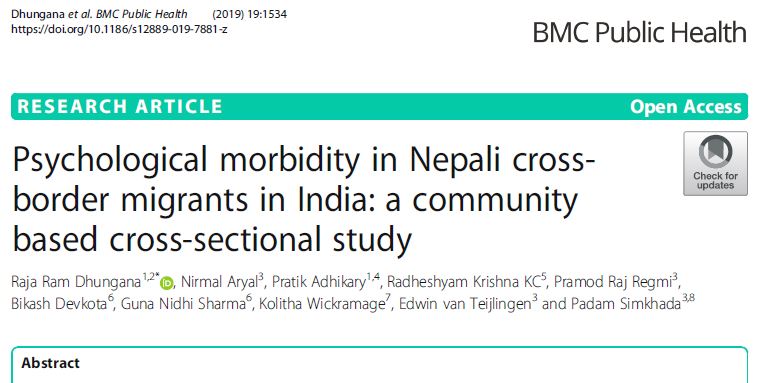
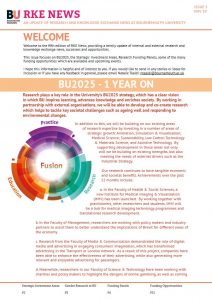 The latest issue of RKE News is
The latest issue of RKE News is 





 NERC is
NERC is 
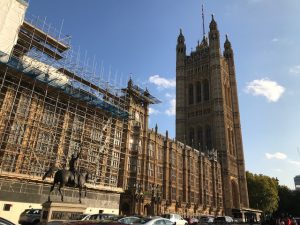
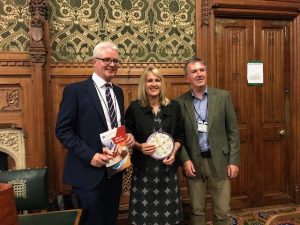
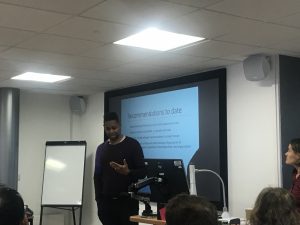
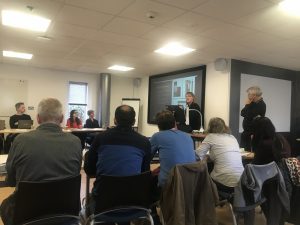











 Upcoming opportunities for PGRs – collaborate externally
Upcoming opportunities for PGRs – collaborate externally BU involved in new MRF dissemination grant
BU involved in new MRF dissemination grant New COVID-19 publication
New COVID-19 publication MSCA Postdoctoral Fellowships 2024
MSCA Postdoctoral Fellowships 2024 Horizon Europe News – December 2023
Horizon Europe News – December 2023